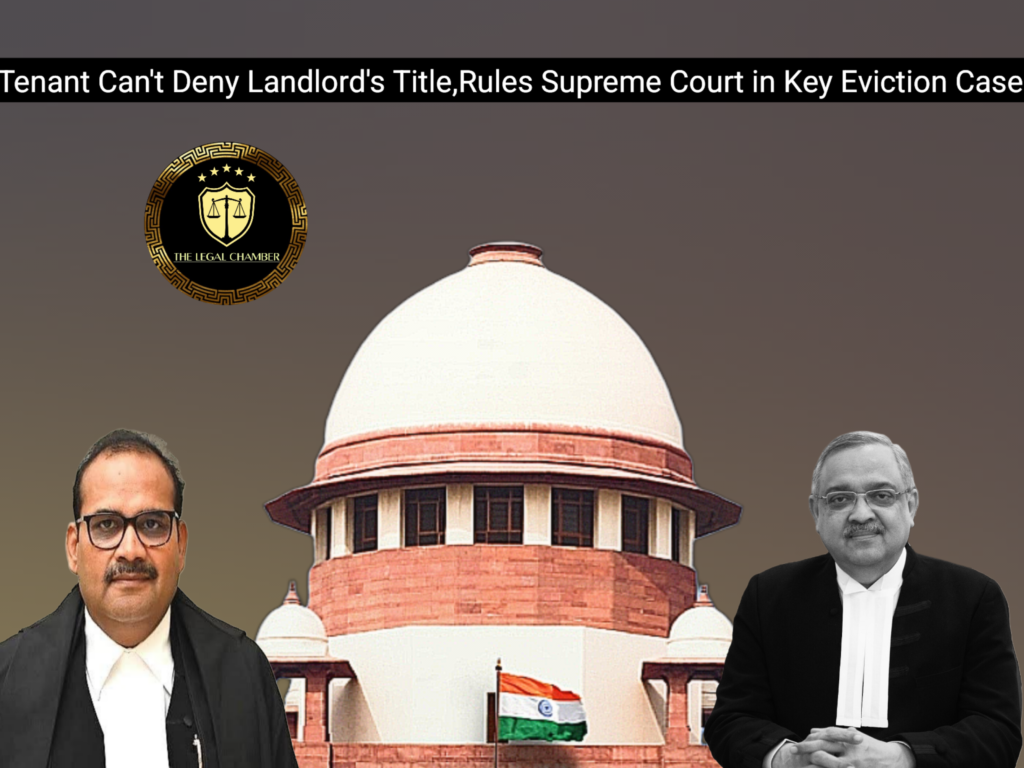
Facts Of The Case:
The dispute involves a shop room tenancy initiated in 1953 by Ramji Das, the appellant’s father-in-law, with the father of the respondents. Upon Ramji Das’s death in 1999, a Will bequeathed the shop to the appellant, Jyoti Sharma. She subsequently filed a suit for eviction on grounds of bona fide need, seeking to expand her husband’s adjacent sweets business, and for recovery of rent arrears from January 2000. The respondents-tenants contested the suit, disputing Ramji Das’s title and alleging the Will was fraudulent, claiming the property originally belonged to Ramji Das’s paternal uncle. The trial court dismissed the suit, a decision eventually affirmed by the High Court, primarily on grounds of the appellant’s failure to conclusively prove ownership and the landlord-tenant relationship post the testator’s death. The courts below had also expressed suspicion over the Will. The Supreme Court, in appeal, found these conclusions erroneous, noting the tenant’s long-standing acceptance of Ramji Das as landlord and the subsequent probate of the Will, which established the appellant’s title sufficiently for an eviction suit.
Procedural History:
The suit for eviction and rent recovery was initially dismissed by the Trial Court. The First Appellate Court, in its initial judgment, reversed the trial court and decreed the suit. However, the High Court, in a second appeal, set aside this order on consent, remanding the matter for fresh consideration. Upon remand, the First Appellate Court then dismissed the plaintiff’s appeal. This dismissal was subsequently affirmed by the High Court in a further second appeal, leading to the filing of the Special Leave Petition before the Supreme Court, which has now culminated in the present judgment.
READ ALSO:Supreme Court Rules: Time-Barred Tax Assessments Cannot Be Revived
Court Observation:
The Supreme Court made several key observations, holding that a tenant who has entered possession under a landlord cannot later deny that landlord’s title. It found the grounds for suspecting the Will, such as the testator not providing for his wife, to be invalid, especially when the probate order granted it legal sanctity. The Court emphasized that in an eviction suit, ownership need not be proved with the same strictness as in a title declaration suit. It also noted that the registered notice sent to the tenants created a presumption of its receipt, which informed them of the bequest. Finally, the Court found the bona fide need for expanding the family business to be genuine and established.
Final Decision & Judgement:
The Supreme Court allowed the appeal, set aside the orders of the courts below, and decreed the suit in favour of the appellant-landlord. The Court directed the eviction of the respondents-tenants on the grounds of bona fide need and default in payment of rent, and ordered the recovery of rent arrears from January 2000. However, considering the long tenancy, the respondents were granted six months’ time to vacate, subject to filing an undertaking before the trial court to pay the arrears within one month and hand over vacant possession within six months. Failure to file this undertaking would entitle the landlord to seek summary eviction.
Case Details:
Case Title: Jyoti Sharma Versus Vishnu Goyal & Anr. Citation: 2025 INSC 1099 Appeal Number: (@ Special Leave Petition (C) No.29500 of 2024) Date of Judgement: September 11, 2025 Judges/Justice Name: Justice J.K. Maheshwari and Justice K. Vinod Chandran
Download The Judgement Here